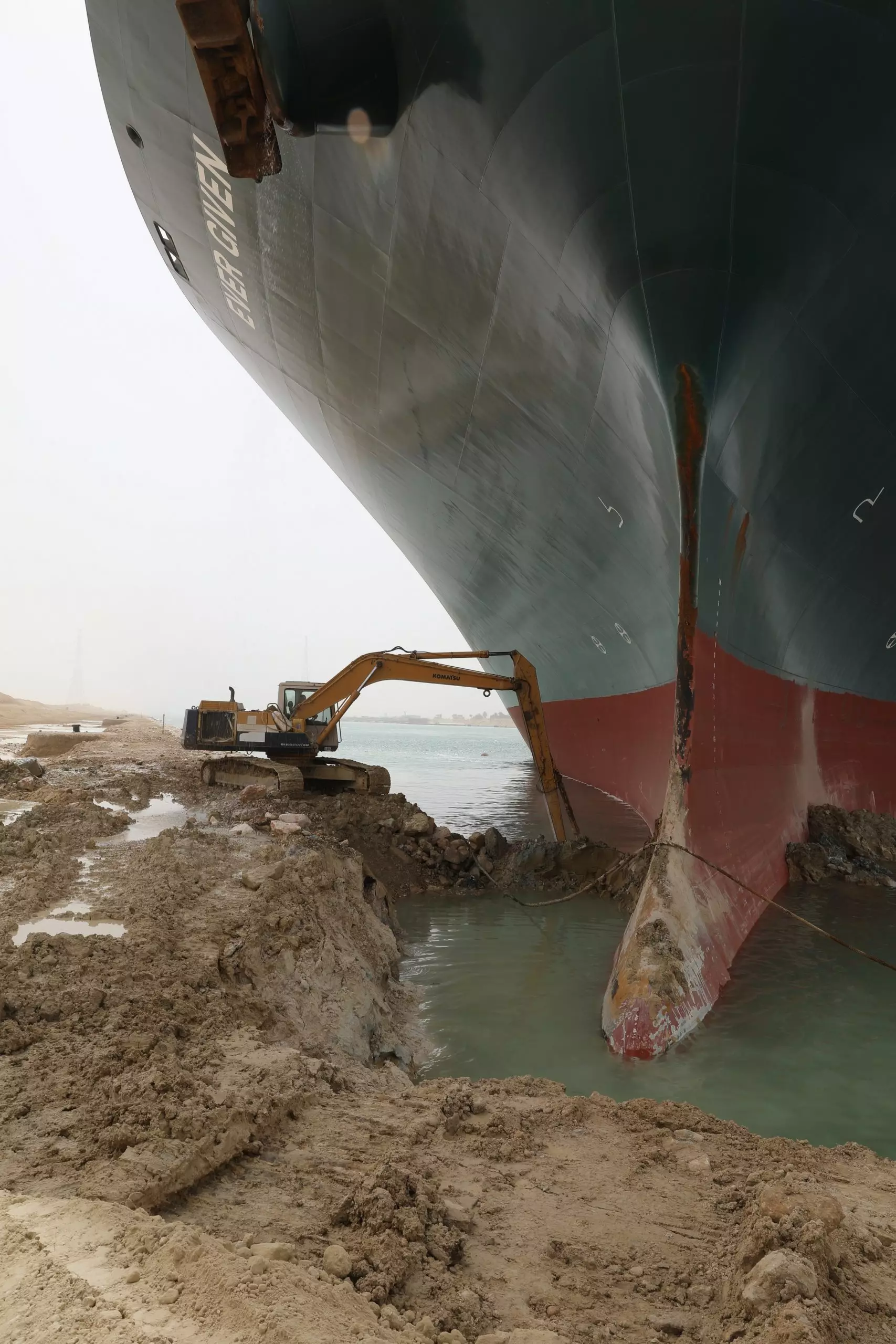It's been three days since Ever Given by the company Evergreen Marine, an enormous container ship — 400 m long, 59 m wide and with a load capacity of 200,000 tons — lost power and direction, which the it crossed and crashed into one of the banks of the Suez Canal, blocking the way for all other ships.
The Suez Canal, located in Egypt, is one of the main maritime trade routes in the world, linking Europe (via the Mediterranean Sea) to Asia (Red Sea), allowing ships that pass through it to save 7000 km of journey (the alternative is to get around the entire African continent). The blocking of passage by Ever Given thus assumes serious economic proportions, which were already due to the disruption caused by the pandemic.
According to Business Insider, the delay in the delivery of goods due to the blocked passage of the Suez Canal, is causing 400 million dollars (approx. 340 million euros) of damage to the world economy… per hour. It is estimated that the equivalent of 9.7 billion dollars (about 8.22 billion euros) of goods per day pass through Suez per day, which corresponds to the passage of 93 ships/day.

How does it affect the car industry and fuel prices?
There are already close to 300 ships that have seen their passage blocked by Ever Given. Of these, there are at least 10 that transport the equivalent of 13 million barrels of oil (the equivalent of one third of the world's daily needs) from the Middle East. The effects on the price of oil have already been felt, but not as much as expected — the economic slowdown due to the pandemic has kept the price of a barrel at low levels.
But the latest predictions to release Ever Given and unlock the Suez Canal pass are not promising. It may take several days or weeks before this is possible.
Predictably, automobile production will also be affected, with the interruption of the delivery of components to European factories – these cargo ships are nothing more than floating warehouses, vital for the “just in time” deliveries by which the automobile industry is governed. If the blockade is prolonged, disruptions in the production and delivery of vehicles are to be expected.
The automobile industry was already going through a troubled period, not only due to the effects of the pandemic, but also to the lack of semiconductors (not enough being produced and showing a huge European dependence on Asian suppliers), which has led to temporary suspensions in the production in many European factories.
Sources: Business Insider, Independent.
